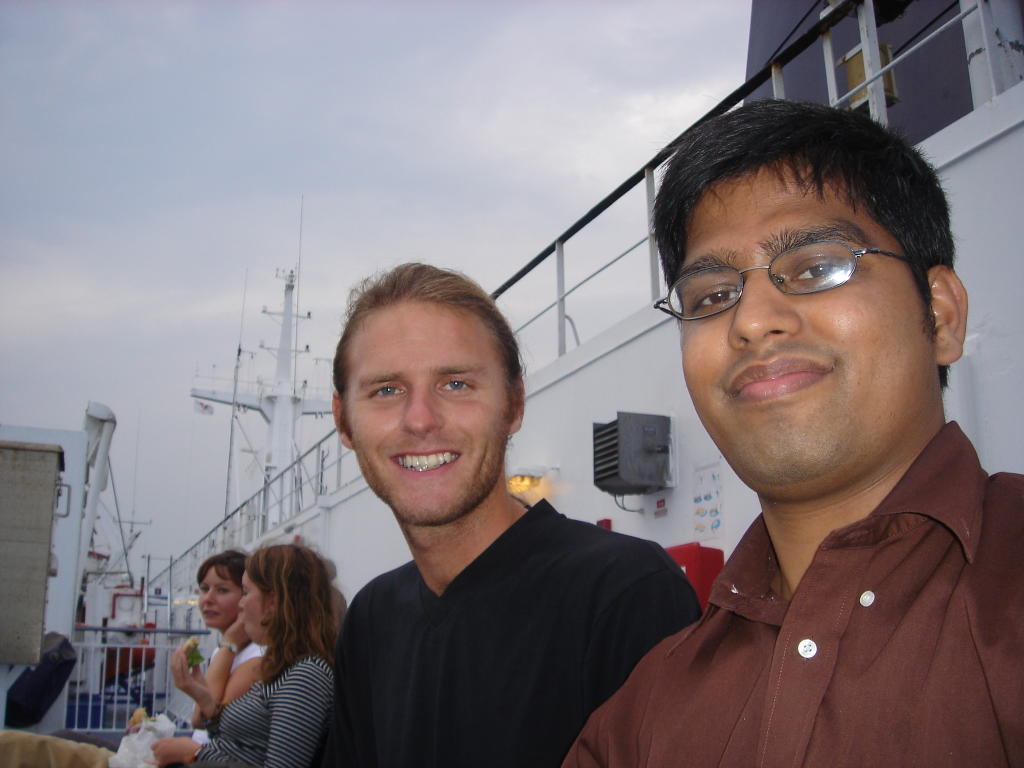One of my friend (Kuntal) has written a mail stating some words from Carlos Castaneda---“My friend, you know for me and for you and perhaps for everyone there is a path, a path that has heart, there we have to travel, looking, looking breathlessly.” and I am pretty impressed with these words.
If I can recall, I was one of the highest scorer in Bengali literature in my board examination in the state, but I continued my study with science. I was good in Biology and eventually ranked better in Entrance Examination after higher secondary, but I have studied Computer Science.
I left my path always because of other priorities in my life.
I want to speak what exactly is missing in most Technocrats. We are expected to be too goal and money oriented and competition frenzied. Its good to be professional from the point of view of the society but it’s quite disappointing on the fact that most of us while becoming engineers and under the relentless pursuit of personal gains and glory seem to lose the very essence of life.
I know it’s difficult for an Indian to go on playing football if he enjoys it, because our society does not give us financial security and social status for doing this, nor we have good infrastructures neither by following the path of our heart we will always be a successful person.But we can do is to find out our subject of interest by listening to our heart and put sometime to harvest it, go deeper and continue contributing to it. Some of us are lucky, we have our special path, interest as our career or part of our profession, like doing some research, teaching and even programming, but for people like us, who has different choice other than the normal profession can find some time from our daily schedule. One of my teachers said that it is never a problem for anyone to find some time for his work of interest. Time is stretchable for doing work of our own interest that comes from the heart.
Rabindranath Tagore, The great poet come philosopher, told our life is for continuation of some flow (Prabaha). The inheritance of flow gets flourished if it finds proper path. Tagore has never been to schools but he found the path for himself and enjoyed every moment of his life through it. If you are one who is devoting time for your own path, be it a coding or career, writing or playing, whatever it may be, you will enjoy every moment of it and for sure you will be a successful person.
Let’s take an example of Dr. Unis, the peace Nobel winner of 2006. He left his job for setting up Gramin Bank in Bangladesh. He had found a path from his heart and invested his life in it and that’s why he is successful. You can never be a successful person, if not you are enjoying the job you are doing. It’s you and me, who will ask the question to our heart to find honest answer, and follow it.
I got the details version of Carlos Castaneda in a mail just now, which differs little from what I have interpreted. Here it goes.
"Anything is one of a million paths. Therefore you mustalways keep in mind that a path is only a path; if you feelyou should not follow it, you must not stay with it underany conditions. To have such clarity you must lead adisciplined life. Only then will you know that any path isonly a path and there is no affront, to oneself or toothers, in dropping it if that is what your heart tells youto do. But your decision to keep on the path or to leave itmust be free of fear or ambition. I warn you. Look at everypath closely and deliberately. Try it as many times as youthink necessary.
This question is one that only a very old man asks.Does this path have a heart? All paths are the same: theylead nowhere. They are paths going through the bush, orinto the bush. In my own life I could say I have traversedlong long paths, but I am not anywhere. Does this path havea heart? If it does, the path is good; if it doesn't, it isof no use. Both paths lead nowhere; but one has a heart,the other doesn't. One makes for a joyful journey; as longas you follow it, you are one with it. The other will makeyou curse your life. One makes you strong; the otherweakens you.
Before you embark on any path ask the question: Doesthis path have a heart? If the answer is no, you will know it, and then you must choose another path. The trouble isnobody asks the question; and when a man finally realizesthat he has taken a path without a heart, the path is readyto kill him. At that point very few men can stop todeliberate, and leave the path. A path without a heart isnever enjoyable. You have to work hard even to take it. Onthe other hand, a path with heart is easy; it does not makeyou work at liking it.
I have told you that to choose a path you must befree from fear and ambition. The desire to learn is notambition. It is our lot as men to want to know.
The path without a heart will turn against men anddestroy them. It does not take much to die, and to seekdeath is to seek nothing. For me there is only the traveling on the paths thathave a heart, on any path that may have a heart. There Itravel, and the only worthwhile challenge for me is totraverse its full length. And there I travel--looking,looking, breathlessly."
I know its tough to find the path of our heart, but we all can try. There is absolutely no meaning of doing a work which you do not like but still you have to, which results in failure sometime and cause frustration.
Just take an example of Kiran Desai, The booker prize winner, who took long 7 years to write a book only (The Inheritance of Loss – for which she has been awarded). I was watching an interview of her in NDTV and she told that she did not have any job and was tired, but came up with excellent epic. Her relentless effort and breathless enthusiasm to her path has made her not only a successful writer, but also she has enjoyed every moment of it.




